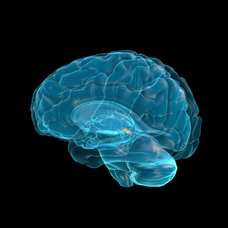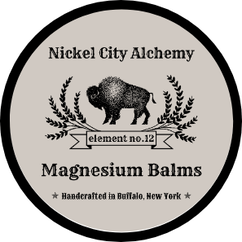- Home
-
All Products
- eGift Card
- Sleep Balm
- CBD Sleep Balm
- Recovery Balm
- CBD Recovery Balm
- Immunity Balm
- Little Buffalo Balm
- Simply Balm
- Heart & Soul Duo
- Magnesium Salt Soaks (1.85 oz)
- Magnesium Salt Soak (8 oz)
- Magnesium Salt Soak Bundle
- Self Care Candle Gift Set: Calming
- Self Care Candle Gift Set: Soul Warming
- Sleepy Buffalo Gift Set (2-Pack)
- The Gift of Wellness Set (3-Pack)
- The Gift of Wellness Set (2-Pack)
- Craft Your Own Gift Set (3-Pack)
- ADD ON: Extra Burlap Gift Bag
- Find in Store & Events
- Testimonials
- Contact
- Buffalo Beauts Partnership
- Blog
 January often brings the surfacing of complex emotions. Some may love the fresh start after the holidays, the return of routines, and the promise of the coming year. Others may feel a bit bummed out that the holidays are over and go through a period of the “Winter Blues” as they get back into regular routines. Either way, though, the prospect of enduring the rest of the long cold winter, especially here in the Buffalo snow belt, has very real effects for a lot of people and can sometimes result in Seasonal Affective Disorder (SAD), which is a specific type of clinical depression. According to Dr. Norman Rosenthal, as cited in the article “Seasonal Affective Disorder” (2018), SAD tends to show up as depression, increased appetite and cravings for carbohydrates, the need to sleep more, decreased activity, and social withdrawal. But did you know that magnesium deficiency may have a part to play in people developing SAD? This has to do with magnesium’s connection to the melatonin cycle, inflammation, neurotransmitters, and vitamin D. MELATONIN: Melatonin is a hormone that is produced by the pineal gland in the brain in response to darkness. It regulates the cycle of sleeping and waking. When the sun sets earlier, the body naturally wants to fall asleep earlier as melatonin is giving those signals. And while we do want melatonin levels to rise in the evening to help us fall asleep, we don’t want them to rise TOO early and make us sluggish before we actually want to go to bed. Magnesium helps to naturally regulate the melatonin cycle. INFLAMMATION: On top of the melatonin cycle being out of sync, many people who experience SAD also have higher levels of inflammation (“Seasonal Affective Disorder,” 2018). Like the melatonin cycle, inflammation is a necessary process for the body... in the right situations. Inflammatory cytokines are necessary in the body to fight infection and promote healing. However, also like the melatonin cycle, the inflammatory process is the most beneficial when it is well regulated and not over- or under-functioning. Magnesium helps to regulate the immune system so it functions properly. NEUROTRANSMITTERS: People with SAD often have lower levels of some neurotransmitters, such as dopamine, norepinephrine, and serotonin, which is a precursor to melatonin. VITAMIN D*: The decreased level of neurotransmitters, particularly serotonin, may be a result of lower levels of vitamin D, a hormone that works to regulate calcium in the blood (“Seasonal Affective Disorder,” 2018). Vitamin D is naturally produced when the body is exposed to sunlight, and magnesium is essential for the body to be able to convert vitamin D to its active form, making it more available for the body to absorb and use. What may be able to help support all of these systems and ease the symptoms of SAD? There is not a single solution, but rather a combination of approaches that work well together!
* NOTE: Very interestingly, recent research suggests a near-zero death rate from COVID-19 among people with vitamin D levels over 50. (Under 20 is generally considered deficient, and under 30 is generally considered insufficient.) The article “COVID-19 Mortality Risk Correlates Inversely with Vitamin D3 Status“ (Borsche, L., Glauner, B., & von Mendel, J., 2021) claims that “The datasets provide strong evidence that low D3 is a predictor rather than just a side effect of the infection. Despite ongoing vaccinations, we recommend raising serum 25(OH)D levels to above 50 ng/mL to prevent or mitigate new outbreaks due to escape mutations or decreasing antibody activity.” In other words, along with being vaccinated and masking, talking to your doctor about supplementing with vitamin D might be a great way to keep yourself healthy (or make viral infection less severe) during the current COVID surge! Disclaimer: The purpose of this blog post is to share information about our products as well as research-based information on magnesium that we have found useful. We are NOT medical professionals and do not intend this newsletter to be taken as medical advice. Our products are not FDA approved or approved for medical use, nor are they intended to diagnose, treat, or cure any disease. Please be sure to consult a medical professional with any questions about utilizing our products along with your current health regimen!
0 Comments
Your comment will be posted after it is approved.
Leave a Reply. |
AuthorsNikki Bradshaw Archives
February 2022
Categories
All
|
- Home
-
All Products
- eGift Card
- Sleep Balm
- CBD Sleep Balm
- Recovery Balm
- CBD Recovery Balm
- Immunity Balm
- Little Buffalo Balm
- Simply Balm
- Heart & Soul Duo
- Magnesium Salt Soaks (1.85 oz)
- Magnesium Salt Soak (8 oz)
- Magnesium Salt Soak Bundle
- Self Care Candle Gift Set: Calming
- Self Care Candle Gift Set: Soul Warming
- Sleepy Buffalo Gift Set (2-Pack)
- The Gift of Wellness Set (3-Pack)
- The Gift of Wellness Set (2-Pack)
- Craft Your Own Gift Set (3-Pack)
- ADD ON: Extra Burlap Gift Bag
- Find in Store & Events
- Testimonials
- Contact
- Buffalo Beauts Partnership
- Blog

 RSS Feed
RSS Feed